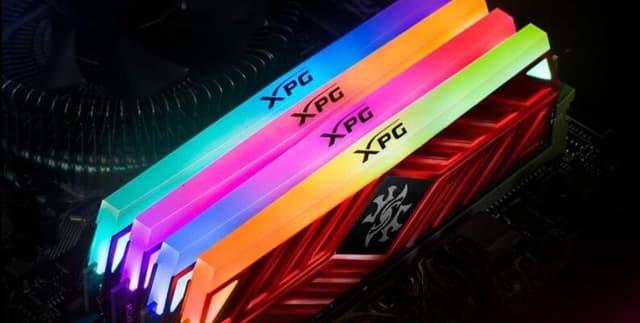RAM Module Transfer Rate and Latency Data
Product Reviews & Feedback
Tags and Keywords
Trusted By




"No reviews yet"
Free
About
Gathers standardised performance metrics for Random Access Memory modules spanning four generations: DDR2, DDR3, DDR4, and DDR5. The data is based on thousands of PerformanceTest benchmark results, scoring memory performance across a standardised series of tests. This resource facilitates easy comparison of RAM kits from leading manufacturers such as G Skill, Corsair, Kingston, Patriot, Crucial, and Mushkin. Transfer rate, measured in MegaBytes per second, is the key indicator of performance; higher rates signify superior results. It is noted that overall memory performance is highly dependent on the central processing unit, which can potentially skew results when comparing different DDR generations.
Columns
- memoryName: The specific model identifier for the RAM stick.
- gen: Specifies the memory generation type (DDR2/DDR3/DDR4/DDR5 SDRAM).
- latency: Latency Time, provided in nanoseconds (ns). Lower values are better for performance.
- readUncached: The Read Uncached Transfer Rate, measured in megabytes (MB) per second. Higher values indicate better performance.
- write: The Write Transfer Rate, measured in megabytes (MB) per second. Higher values are preferred.
- price: The Current Market Price, recorded in United States Dollars ($).
Distribution
The information is structured in a tabular format, contained within a CSV file named
RAM_Benchmarks_megalist.csv. The file size is approximately 690.79 kB. The structure consists of six columns and approximately 10,900 valid records. It is important to note that the data in the 'price' column is largely missing, with only about 13% of records having a valid price entry.Usage
This data is ideal for users seeking to benchmark and compare multiple RAM kits before making purchasing decisions. It supports objective model comparisons across different technological generations. It can be used in the context of buying or building a new personal computer, allowing users to assess performance metrics like transfer rate and latency effectively. The data is suitable for generating technology reviews and ratings.
Coverage
The scope includes benchmark results for memory models spanning the DDR2 through DDR5 generations. The data was made current as of May 4th, 2022. The product is expected to be updated on an annual basis.
License
CC0: Public Domain
Who Can Use It
- PC Builders and Systems Integrators: To select the most optimal RAM kits based on proven performance metrics.
- Technology Journalists and Reviewers: To publish quantitative analyses comparing the latest memory generations and manufacturers.
- Computer Science Students: To study the performance characteristics and limitations of different memory standards.
Dataset Name Suggestions
- DDR Memory Performance Benchmarks: Generations Two to Five
- RAM Module Transfer Rate and Latency Data
- PassMark Hardware Performance Benchmarks
- Computer Memory Model Comparison Data
Attributes
Original Data Source: RAM Module Transfer Rate and Latency Data
Loading...
